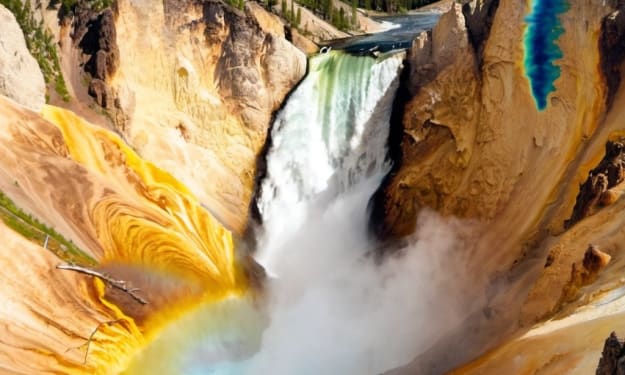Why is nature important in our life?
Love Nature

Why is nature important in our life?
Introduction
Nature is the foundation of human life and well-being. From the air we breathe to the food we eat, the natural world provides us with a wide range of essential ecosystem services that are critical for our survival and prosperity. However, despite the critical importance of nature, human activities, such as pollution, deforestation, and climate change, have led to the degradation and loss of natural ecosystems worldwide.
The destruction of natural ecosystems has significant consequences for human health and well-being. For example, air pollution can lead to respiratory diseases, while the loss of natural habitats can lead to the extinction of species and the collapse of ecosystems. In addition to these practical concerns, the loss of nature also has significant cultural and aesthetic value. Natural landscapes, such as mountains, forests, and oceans, have inspired human creativity and art for thousands of years, providing a sense of wonder and awe that is essential for our emotional and spiritual well-being.
In this article, we will explore the critical importance of nature in our lives and why it is essential to protect and preserve it. We will discuss the role of nature in providing ecosystem services, its impact on mental health and well-being, and its cultural and aesthetic value. We will also examine the root causes of environmental degradation and the importance of adopting sustainable practices to ensure a healthy and prosperous future for ourselves and the planet.
Nature is essential for human life and well-being. It provides a wide range of ecosystem services, such as food, water, clean air, and biodiversity, that are essential for human survival and prosperity. In addition, nature offers a range of recreational and cultural opportunities that enrich our lives and connect us to the natural world. In this article, we will explore the importance of nature in our lives and why it is critical to protect and preserve it.
One of the most critical roles of nature in our lives is the provision of ecosystem services. Ecosystem services are the benefits that humans derive from natural ecosystems, such as food, water, clean air, and biodiversity. For example, natural ecosystems provide a wide range of food products, such as fruits, vegetables, grains, and fish, that are essential for human nutrition and health. Additionally, natural ecosystems help purify water, regulate climate, and maintain the balance of the natural world, all of which are essential for human survival and prosperity.

Another important role of nature in our lives is its impact on mental health and well-being. Studies have shown that exposure to nature can improve our mood, reduce stress, and improve cognitive function. Nature also provides opportunities for physical exercise and outdoor recreation, which can improve physical health and well-being.
In addition to its practical and health benefits, nature also has significant cultural and aesthetic value. Natural landscapes, such as mountains, forests, and oceans, have inspired human creativity and art for thousands of years. They provide a sense of wonder and awe that is essential for our emotional and spiritual well-being.
Despite the critical importance of nature in our lives, human activities, such as habitat destruction, pollution, and climate change, have led to the degradation and loss of natural ecosystems. This loss of nature has significant consequences for human health, prosperity, and well-being. For example, deforestation can lead to soil erosion, flooding, and the loss of biodiversity, which can have significant economic and social costs.
To protect and preserve nature, it is essential to adopt sustainable practices that balance human needs with the conservation of natural ecosystems. Sustainable practices include responsible land use, conservation and restoration of natural ecosystems, and the adoption of renewable energy sources. It is also essential to address the root causes of environmental degradation, such as unsustainable consumption and production patterns, and climate change.
In conclusion, nature is essential for human life and well-being. It provides a range of ecosystem services that are critical for human survival and prosperity, as well as cultural and aesthetic value that enrich our lives. However, human activities have led to the degradation and loss of natural ecosystems, which have significant consequences for human health and well-being. To protect and preserve nature, it is essential to adopt sustainable practices and address the root causes of environmental degradation. By doing so, we can ensure a healthy and prosperous future for ourselves and the planet.
About the Creator
Love The Green
Welcome to my page,I hope to share my experiences, insights, and knowledge with fellow nature enthusiasts.Together, we can celebrate the wonders of the natural world, and work to protect and preserve it for future generations to enjoy🌿🌲






Comments
There are no comments for this story
Be the first to respond and start the conversation.